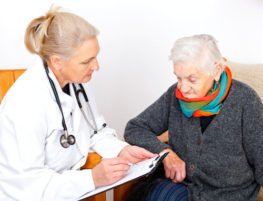Elder Abuse Comes in More Than One Form

When you think of elder abuse, you often think of something physical or visibly damaging. Far too often, though, the elderly are mistreated or neglected, leading to costly hospitalizations and untold amounts of emotional harm. But just because something doesn’t show up as a bruise or a mark doesn’t mean that it’s not abuse. One thing that we would like to bring to your attention is the idea of elder abuse of a different type: failing to receive the medication proper for the diagnosed condition. Any individual who has been diagnosed with a condition and is not receiving the medication they deserve is being abused.
It’s easy to think of medication as just one pill here or there, etc. and so on. However, it’s much more important than that. Elderly patients with serious health problems can be greatly impacted should they fail to receive the medication they need on a regular basis. Lapses in treatment or staff members stealing medication for their own use or personal pursuits is a very real and important thing to be looking for. Without the proper medication, it’s almost impossible to know when an elderly patient is struggling or simply not receiving what they need in order to continue their progress or to maintain their stability.
Stolen or misappropriated medications are also a form of elder abuse. The reality is that a nursing home or medical facility is able to charge large amounts of money for the medication that they provide. If they’re not furnishing those medications, or if those pills are going into someone’s pocket instead of toward your loved one’s care, the patient is being defrauded out of significant amounts of money. What’s more, the physical damage associated with failing to receive the necessary medication may lead to additional treatment, or worse.
So what are the warning signs of elder abuse that you need to keep an eye out for? The answer is not entirely simple. Unfortunately, with medications, it is difficult to know if the specific drug or treatment plan is simply not working the way it was hoped to, or if it is simply not being administered. That said; keep an eye out for the following:
- Significant changes in behavior or mood.
- Weight loss or shifts in appearance related to condition
- No signs of regular treatment.
- An unwillingness on the part of the facility to provide medical/treatment records.
- Signs of theft or missing items belonging to your loved one.
- And more.
Because a medical facility like a nursing home is in charge of the entire care of a loved one, it’s nearly impossible to say that any one of these signs is a ‘smoking gun’ of abuse. However it’s important to trust your gut. If you have questions about the care that your loved one is receiving or suspect elder abuse, ask questions. Far too many people are afraid of “rocking the boat” when, in fact, their concern maybe the only way that their elderly loved one is able to receive the treatment that they deserve.
If you suspect that someone is being abused in a nursing home, contact us today by calling (877) 469-7273 or filling out our contact form.













